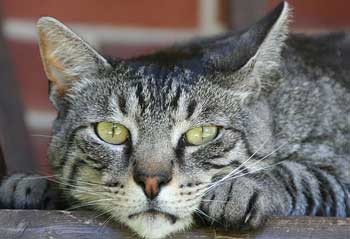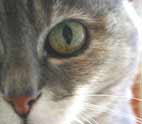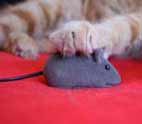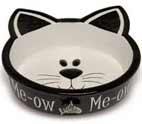Feline Leukemia
Protect Your Cat from FeLV!
Feline Leukemia Virus is one of the dangerous cat illnesses that strikes fear into the heart of many a pet owner! But here you will find the information you need to help you protect your feline friend.
FeLV is the virus that can lead to the life threatening condition cat leukemia as it is also commonly known. But luckily there are highly effective vaccines available to help you protect your cats from this virus.
As a responsible cat owner it is important for you to know about such diseases so that you can do everything you can to look after them
Find Out More On This Page:
- What is FeLV?
- Symptoms of Feline Leukemia
- How is the Illness Spread?
- Is There a Treatment for FeLV?
What Is FeLV (Feline Leukemia)?

FeLV stands for Feline Leukemia Virus and this dangerous illness is unfortunately quite common. Between 1% to 10% of UK cats deaths are attributed to FeLV.
It is a virus that affects only cats. It multiplies inside their body and damages their white blood cells. This then weakens their immune system, leaving them vulnerable to many different diseases.
It is not the virus itself that eventually kills the poor animal but the cat illnesses they develop because of it, such as cat leukemia itself.
Leukaemia is a cancer and so in itself is not infectious. However it is caused by the FeLV virus which is catching.
Most cats build up their own antibodies which reject the FeLV virus. But it is estimated that about 30% of cats are not able to fight off the virus and so therefore become infected.
These cats then become infectious themselves and can pass the infection on.
An FeLV positive cat will normally only live up to another 3 years after becoming infected. This is why it is one of the more feared cat illnesses and why owners need to know what causes it and how to prevent their pet from catching it.
The best way to protect your pet from cat leukemia is by having it vaccinated against the virus and your vet can advise you about this in more detail.
Make sure you are able to help your beloved pet in their hour of need while protecting
yourself from huge veterinary bills.
Read my story of how pet insurance saved me from thousands of pounds in vet bills.
How Is FeLV Spread?

This virus is spread from one cat to another by direct contact such as from licking each other.
It cannot be spread via cat bowls or bedding as the virus cannot survive outside of the body for long and is easily killed with disinfectant. It also cannot be passed to humans or other animals.
Any age of cat can catch the virus but kittens younger than 4 months are particularly vulnerable. This is because their immune system has not developed enough to protect themselves against it, so particular care should be taken.
However kittens born to a FeLV positive female are likely to be already infected.
How Can I Tell If My Cat Is Infected?

There are no definite outward signs of the Feline Leukemia Virus in itself, but there are a few warning signs that may suggest that something is wrong in the long term.
These signs can include:
- Recurring episodes of ill health
- Recovery times from minor illnesses take longer and longer
- Listlessness and fever
- Spontaneous abortion of kittens
If you are the least bit concerned that your cat may be infected, then the only way to diagnose the Feline Leukemia Virus is via a blood test.
Your vet will carry out a quick test that will show if a part of the virus known as the p27 is present. If it is, then a second test will be carried out.
This second test is called a virus isolation test. This is where the virus is grown in a cell culture and will confirm or deny the presence of the infection.
The second test is very important, as up to 50% of the first blood tests taken by the vet are false positives.
Is There A Treatment For FeLV?
Unfortunately there is no cure for the virus in itself. Symptoms can be treated by the vet but in the long run the cat will usually become very sick and die within three years.
Often, vets will suggest that it is kinder to put them to sleep rather than put them through any further distress. It will also help to prevent the virus from being spread to other cats.
However, they can be cared for at home if kept as indoor cats and as long as they don't mix with uninfected cats (so as not to spread the infection).
This can be done for as long as they are comfortable and not in any distress, until it comes to the time when it might really be kinder to put them to sleep.
Protecting your pet from Cat Leukemia and FeLV by having them vaccinated is the best option for all caring pet owners.
There are several vaccines available and your vet will discuss with you which one is best for your cat. The vaccines can be given at the same time as the cat flu vaccine and should be given from 9 weeks old.
Although the vaccine is very good at protecting your cat, no vaccine is ever 100% effective and so infected cats should never be mixed with healthy vaccinated cats.
It is also good to remember that you should still have your pet tested regularly for Feline Leukemia Virus even after they have been vaccinated. It is better to be safe than sorry! Serious cat Illnesses like this need to be kept in check to help protect the wider cat population in the long term.
Top of this Feline Leukemia page





